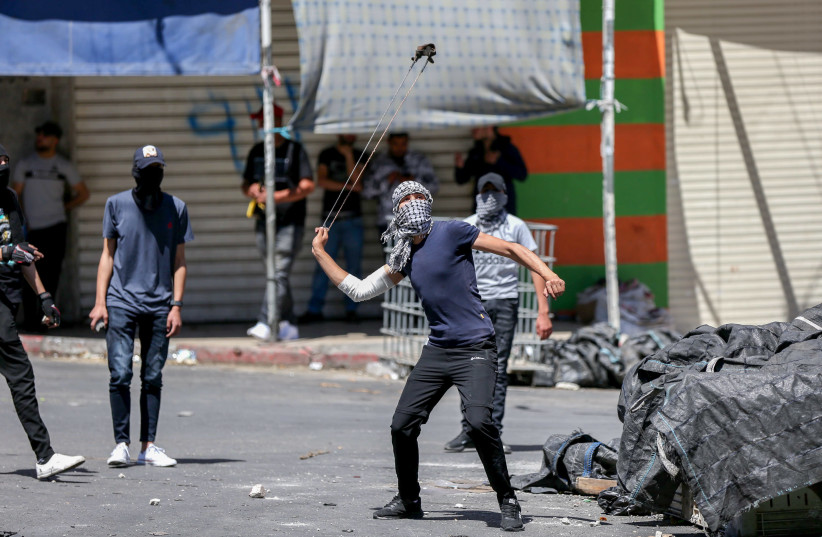Israeli research institute NGO Monitor released on Sunday a database of Palestinian youth combatants on its website.
The database is intended to provide accurate information about young Palestinians whom Palestinian non-governmental organizations (NGOs) misrepresent to allege that Israel has violated children’s rights in order to get the international community to sanction the country.
According to NGO Monitor’s website, “terror-tied Palestinian NGOs — including Defense for Children International –Palestine (DCI-P), Palestinian Centre for Human Rights (PCHR), and Al-Haq — regularly distort the circumstances surrounding the deaths of Palestinian minors in terror incidents. They ignore or minimize the violent attacks perpetrated by the minors that precipitated their deaths and blame Israel for deploying self-defense measures to protect the victims of such attacks.”
These NGOs also “erase [the] essential element” of violent rioting when Palestinian youths die under such circumstances, and make claims that contradict media reports, the institute added. NGO Monitor further claims that organizations that employ these tactics attempt to have the IDF added to a UN blacklist of child abusers including prominent terror organizations such as the Taliban and al-Qaeda.
“Palestinian NGOs that claim to promote human rights agendas deny evidence of the recruitment and use of children by Palestinian terror orgs. Our new database of child combatants exposes the terror context ignored by NGOs that demonize Israel,” NGO Monitor tweeted.
The database, which uses sources including statements from official Israeli bodies, media organizations, social media and NGO reporting, features two sections: one focuses on Palestinian minors who attacked Israelis and/or died in clashes with Israeli security personnel, while the other deals with minors who died in Gaza border riots.

Who is in the database?
One example of the minors featured in the database is Mahmoud Salah, who was wounded by IDF gunfire in 2019 when he was 15 years old. The IDF stated that Salah attempted to throw a firebomb at soldiers on Route 60. In contrast, DCI-P claimed that the youth was shot while attempting to retrieve a soccer ball. After his injury, Fatah referred to Salah as “its wounded ex-detainee son” on a poster.
Mohammad Hamayel is another minor on the list. Hamayel was killed by IDF forces while participating in clashes that included stone-throwing and firework launching. Although the Popular Front for the Liberation of Palestine (PFLP) called the 15-year-old “its comrade” on an official poster, numerous Palestinian NGOs omitted the fact that Hamayel was affiliated with the PFLP, and one even referred to the protest as “peaceful,” per NGO Monitor.
The database includes important information for UN and government officials
"This cynical NGO and UN campaign to demonize the IDF has whitewashed the exploitation of Palestinian teenagers for terror attacks, and also erased the victims," Gerald Steinberg, NGO Monitor's founder and president told The Jerusalem Post. "The process of systematically documenting the details of these heinous abuses spotlights the incitement, recruitment and training of Palestinian children for terror, and the continued silence of the self-proclaimed human rights community.
UN and government officials who support these Palestinian NGOs and the blacklist will be provided with the information that these NGOs do not provide about youth combatants, making it more difficult for them to justify their support in the future," Steinberg said. "Our objective is to stop the cynical exploitation of the Children and Armed Conflict (CAAC) framework and restore its moral foundation."
